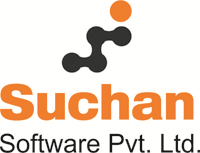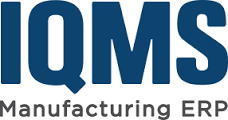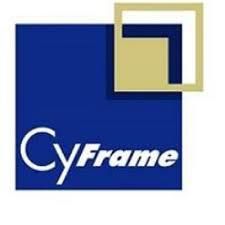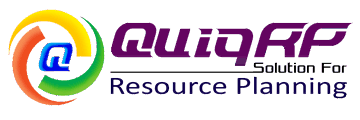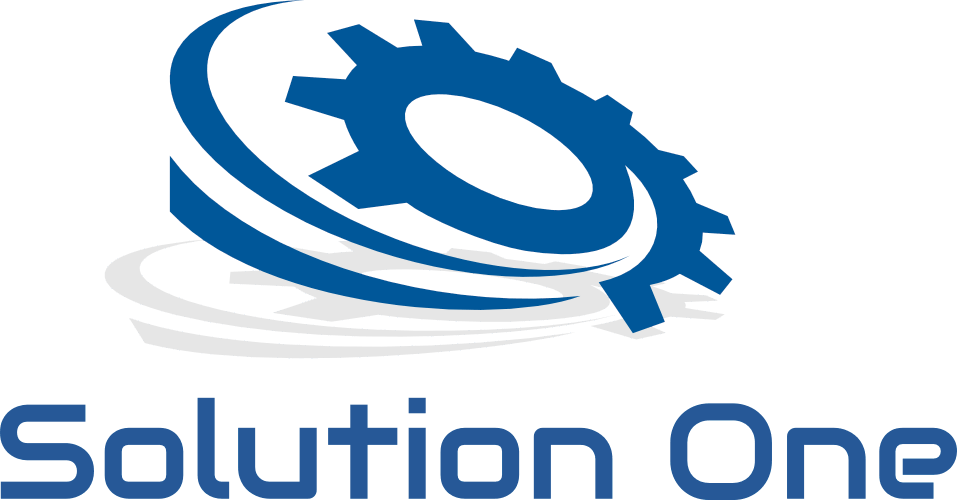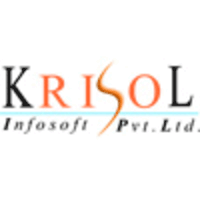Yes, most modern plastic industry software can be accessed from numerous devices and platforms, including computers, tablets, and smartphones, as long as an internet connection is present. This enables plastic makers to maintain constant access to critical data and tools, regardless of their location or preferred device. However, it is critical to ensure that the software is compatible with the specific devices and operating systems in use.
List of Best Plastic Industry Software
iGreen T.FAT ERP, and sophisticated software designed for businesses of all sizes. Its modular structure enables swift integration and customization for a wide range of industries such as General Manufacturing, Glass, Plastic, Motors/Pumps, Investmen...Read More iGreen T.FAT ERP
Upgrade your packaging processes with IQMS Manufacturing ERP. This comprehensive solution offers advanced features like lot and serial UPC labeling, traceability, and document control. With flexible BOM capabilities for dies and inks, your company ca...Read More IQMS Manufacturing ERP
CyFrame is an advanced ERP software crafted specifically for the plastic industry to boost efficiency. Our comprehensive solutions include plastic inventory management, packaging software, and specialized modules for injection, extrusion, and blown f...Read More CyFrame
Vero Software is an industry-leading solution that caters specifically to the Plastics Industry. It delivers a event that combines the latest technology with educational advancements for the plastic industry. With its advanced functionalities, Vero S...Read More Vero Software
Husky: a leading software in the plastics industry that offers a complete range of solutions for injection molding equipment and services. From machines and molds to hot runners and integrated systems, Husky utilizes advanced technology to fulfill th...Read More Husky
Experience the power of QuiqRP ERP is ainnovative software solution designed to streamline your business processes. Our user-friendly platform offers a free demo and 2 days of onsite training, along with one year of online training. Our dedicated Tec...Read More QuiqRP ERP
Solution One ERP, created by Fortune Systems, is the premier solution for Engineering and Manufacturing fields. Boasting a diverse clientele, including prominent NSE/BSE and MNC Listed Companies, our software has a track record of success with over 1...Read More Solution One ERP
Krisol ERP Plastic is a software solution for the plastic industry. Our comprehensive ERP system is designed to increase efficiency and productivity in plastic businesses. With specialized features and tools, Krisol ERP Plastic is the perfect choice...Read More Krisol ERP Plastic
Sage ERP, the premier enterprise management software designed specifically for the plastic industry. With cutting-edge capabilities and a user-friendly interface, Sage ERP simplifies and optimizes business operations. Accessible from anywhere and at...Read More Sage ERP
MISys Manufacturing is software designed for plastic manufacturing companies. This comprehensive solution allows for the creation and management of multi-level bills of materials, efficient inventory cycle counting, and seamless processing of product...Read More MISys Manufacturing
Supreme is arenowned name in the Indian plastic industry. Our company offers a wide range of cost-effective pipe solutions for various purposes, from Molded Furniture to Composite Plastic Products and Plastic Piping Systems. Choose our trusted brand...Read More Supreme
Learn More About Plastic Industry Software
- What Is Plastic Industry Software?
- What Are The Recent Trends In Plastic Industry Software?
- Benefits Of Using Plastic Industry Software
- Important Factors To Consider While Purchasing Plastic Industry Software?
- What Are The Key Features To Look For In Plastic Industry Software?
- Why Do Businesses Need Plastic Industry Software?
- How Much Time Is Required To Implement Plastic Industry Software?
- What Is The Level Of Customization Available In Plastic Industry Software?
- Which Industries Can Benefit The Most From Plastic Industry Software?
- Conclusion
What Is Plastic Industry Software?
Plastic industry software is specialist software that assists organizations in the plastic manufacturing industry in streamlining their processes, increasing productivity, and profitability. It provides a comprehensive range of tools and features that are specifically designed to fulfill the unique requirements of plastic producers and suppliers. One of the most important advantages of plastic industry software is its capacity to monitor and track the complete plastic manufacturing and supply chain process.
This comprises inventory management, order processing, production scheduling, quality assurance, and shipping & logistics. The program automates these procedures, reducing manual errors and delays, resulting in faster response times and more client satisfaction. Another important feature of plastic industry software is its sophisticated data management capabilities.
It enables firms to record, organize, and analyze production data in real time, offering useful insights and analytics for making sound business decisions. This data can also be utilized to detect inefficiencies in the manufacturing process and implement adjustments to boost productivity and lower costs. Furthermore, plastic industry software frequently includes integrated accounting and financial management systems, enabling organizations to keep track of their spending, revenue, and profitability.
This is especially valuable for small and medium-sized enterprises who do not have a dedicated accounting department. In addition, plastic industry software provides elements for meeting compliance and regulatory needs, such as material tracking and certification. This guarantees that businesses follow industry norms and laws. One of the most significant benefits of plastic industry software is its flexibility to be customized and scaled to meet the unique requirements of a company. From small-scale plastic producers to huge international corporations, the program may be customized to fit the specific needs of any company.
What Are The Recent Trends In Plastic Industry Software?
Plastic industry software is specialist software that assists organizations in the plastic manufacturing industry in streamlining their processes, increasing productivity, and profitability. It provides a comprehensive range of tools and features that are specifically designed to fulfill the unique requirements of plastic producers and suppliers. One of the most important advantages of plastic industry software is its capacity to monitor and track the complete plastic manufacturing and supply chain process.
This comprises inventory management, order processing, production scheduling, quality assurance, and shipping & logistics. The program automates these procedures, reducing manual errors and delays, resulting in faster response times and more client satisfaction. Another important feature of plastic industry software is its sophisticated data management capabilities.
It enables firms to record, organize, and analyze production data in real time, offering useful insights and analytics for making sound business decisions. This data can also be utilized to detect inefficiencies in the manufacturing process and implement adjustments to boost productivity and lower costs. Furthermore, plastic industry software frequently includes integrated accounting and financial management systems, enabling organizations to keep track of their spending, revenue, and profitability.
This is especially valuable for small and medium-sized enterprises who do not have a dedicated accounting department. In addition, plastic industry software provides elements for meeting compliance and regulatory needs, such as material tracking and certification. This guarantees that businesses follow industry norms and laws. One of the most significant benefits of plastic industry software is its flexibility to be customized and scaled to meet the unique requirements of a company. From small-scale plastic producers to huge international corporations, the program may be customized to fit the specific needs of any company.
Benefits Of Using Plastic Industry Software
When it comes to the manufacturing and production of plastic items, employing industry-specific software can greatly help firms in a number of ways. Plastic industry software provides numerous benefits to organizations working in this sector, including process streamlining, increased productivity, and cost savings.
As a buyer, consider the following main benefits of adopting plastic industry software:
1. Streamlines Operations: Plastic industry software automates and streamlines a variety of activities, including inventory management, production planning, and quality control. This saves time while also improving operational precision and consistency.
2. Increases Productivity: Plastic industry software, which includes capabilities such as real-time production monitoring and resource optimization, can help organizations increase productivity levels. This means faster turnaround times and higher output, helping businesses to satisfy client needs while staying ahead of the competition.
3. Improves Quality Control: Plastic industry software provides comprehensive quality control modules that allow organizations to closely monitor product quality throughout the manufacturing process. This helps to swiftly detect and correct any defects or errors, ensuring that customers receive high-quality items.
4. Cost Savings: By automating processes and decreasing human labor, plastic industry software can help organizations save operational expenses dramatically. It also reduces the danger of waste and rework, resulting in higher cost savings and profitability.
5. Provides Real-Time Insights: Plastic industry software's reporting and analytics features enable firms to acquire vital insights into their operations. Companies that have real-time data on production, inventory, and sales can make more informed decisions and find areas for development.
6. Improves Efficiency: Plastic industry software integrates with other company systems, such as ERP and CRM. This enables seamless communication across divisions, eliminates data silos, and improves overall productivity.
7. Encourages Compliance: Many nations have stringent rules and standards in place for the manufacture and use of plastic items. Plastic industry software includes built-in compliance modules to ensure that organizations meet these criteria and avoid penalties or legal concerns.
Important Factors To Consider While Purchasing Plastic Industry Software?
When it comes to selecting plastic industry software, there are a few crucial elements to consider before making a purchase. Whether you are a small, medium, or large company in the plastic sector, choosing the correct software can have a huge impact on the productivity and success of your organization. First and foremost, determine your specific software needs and goals.
Are you seeking for a way to streamline your manufacturing processes, manage inventory, or increase quality control? Understanding your objectives can help you limit down your alternatives and guarantee that the software you chose meets your specific needs. Another essential consideration is the software's ease of use. Any software's success is determined on user acceptance, therefore choose a system that is simple to use and navigate.
This will help reduce the learning curve and increase the software's efficacy in your regular operations. It is also critical to assess the software's interoperability with your current systems and processes. You want to eliminate any potential integration issues or the requirement for additional software to ensure the new system works properly. Many software suppliers provide demonstrations or trials, which can be valuable for determining compatibility and functionality before making a purchase.
In addition to functionality, the software's security and data privacy features must be carefully considered. As a plastics company, you most certainly handle sensitive information and want to ensure that your data is secure from cyber threats. Look for software that includes features like data encryption and user access controls to protect your valuable information.The pricing of the software is another important issue to consider.
While staying under a realistic budget is critical, the software's return on investment must also be considered. Look for software that strikes a balance between functionality and price, and think about the long-term benefits rather than just the upfront cost. Finally, it is critical to conduct research and read reviews regarding the software supplier before making a decision. Look for a respected company with a track record of delivering high-quality, dependable software solutions. You can also contact other companies in the plastic industry that use similar tools to collect insights and feedback.
What Are The Key Features To Look For In Plastic Industry Software?
When contemplating investing in plastic industry software, several essential characteristics should be carefully reviewed to guarantee they match your company's specific demands and expectations.
Let's look at some of the most important aspects to consider while buying for plastic industry software:
1. Material Management: The optimal plastic industry software should have extensive material management features. This includes the capacity to check inventory levels, monitor usage and waste, and properly predict material requirements. This function is especially significant for plastic makers because it helps to optimize material utilization and lower costs.
2. Production Planning & Scheduling: Efficient production planning and scheduling are critical in the plastic business to accommodate high demand and short turnaround times. Look for software that provides real-time production planning and scheduling, allowing you to change and optimize production schedules as necessary. This will help you prevent delays and backlogs, resulting in higher customer satisfaction.
3. Quality Control: Ensuring quality control is critical in the plastics sector. Look for software that has quality control capabilities such as real-time monitoring and inspection of manufacturing processes, automated quality checks, and the ability to generate reports and certificates for compliance and auditing.
4. Supply Chain Management: A well-managed supply chain is critical for staying competitive in this fast-paced sector. Look for software that includes capabilities like supplier relationship management, procurement, vendor management, and logistics management to help you improve your supply chain procedures and assure timely delivery of materials and products.
5. Customization And Integration: Each firm has its own set of requirements and processes. As a result, it is critical to acquire software that can be adjusted to meet your individual needs. Furthermore, the software should be able to interact with your company's other systems and third-party applications, allowing for seamless data interchange and process optimization.
6. Analysis And Reporting: Data is an important asset in any organization, and the plastic sector is no exception. A reliable software should be able to collect, analyze, and report data in real time, providing useful insights into your production processes, performance, and costs. This information can help you make more informed decisions and discover areas for improvement.
7. User-Friendly Interface: A user-friendly interface is critical for software uptake and efficiency. Look for software with a simple and easy-to-navigate interface, including drag-and-drop capabilities and data visualization. This saves time and shortens the learning curve for your team.
Why Do Businesses Need Plastic Industry Software?
Businesses in the plastic sector might considerably benefit from using specialist software that is tailored to their industry. Plastic industry software provides a variety of features and capabilities to assist organizations streamline operations, boost productivity, and remain competitive in the market. One of the primary reasons why firms require plastic industry software is to increase overall productivity.
This program enables the seamless management of multiple areas of the plastic industry, including production planning, inventory management, and quality control. With all of these processes automated and improved, firms may greatly boost output while meeting consumer demands on time. Furthermore, plastic industry software allows organizations to track their whole supply chain, from raw materials to completed goods.
This aids in inventory management, recognizing bottlenecks or delays, and guaranteeing a consistent flow of manufacturing. Businesses that have a comprehensive perspective of their supply chain can make more informed decisions and avoid costly disruptions. Furthermore, plastic industry software provides comprehensive reporting and analytics capabilities, enabling organizations to obtain vital insights into their operations.
This data-driven strategy can assist them in identifying patterns, analyzing performance, and making data-driven decisions to promote growth and profitability. Compliance and traceability are two other critical areas where plastic industry software may help. The program allows organizations to track and trace their items, ensuring they meet industry standards and regulations.
This not only helps firms meet regulatory standards, but it also increases customer trust and trustworthiness. Finally, investing in plastic industry software can lead to significant cost reductions for firms. Businesses can reduce operational expenses and increase profits by automating manual procedures, eliminating errors, and enhancing efficiency.
How Much Time Is Required To Implement Plastic Industry Software?
The implementation time for plastic industry software varies depending on several aspects, including the company's size, the complexity of the program, and the level of customization necessary. On average, it takes between three months to a year to fully adopt and integrate software into a company's operations. Initial Set-Up: The first stage in deploying plastic industry software is the initial setup.
This comprises installing the program, creating user accounts, and configuring the basic settings based on the company's requirements. This typically takes between 2 and 4 weeks, depending on the complexity of the software and the company's IT infrastructure. Data Migration: The next step is to move all relevant data from the company's existing systems to the new software.
This procedure can take several weeks or months, depending on the amount of data and its complexity. It is an important step for ensuring that the software runs smoothly. Training: The effectiveness of any software implementation is contingent on the users' ability to use it effectively. The training procedure might last anywhere from two weeks to two months, depending on the amount of personnel to be trained and their expertise with similar software.
This includes both initial training and continuing support to ensure that users understand all of the software's capabilities and functionalities. Customization: Many plastic industry software solutions allow you to modify the program to your company's specific demands. The time required for customization varies substantially and is determined by the complexity of the customisation desired.
Simple adjustments may only take a few days, whereas more sophisticated changes can take several weeks.Testing and Integration: Before fully installing the software, it is critical to test its functionality and integration with other systems in the firm. This procedure can take anything from two weeks to a month, depending on how sophisticated the program is. Successful integration is critical to the software's efficiency and effectiveness.
What Is The Level Of Customization Available In Plastic Industry Software?
When it comes to Plastic Industry Software, one of the most important considerations is the level of customisation. This refers to the capacity to customize the software to meet the unique requirements and operations of your plastic manufacturing business. Most current Plastic Industry Software systems provide a great level of customisation, enabling firms to tailor the software to their specific needs.
This includes the ability to add or delete certain features, adjust workflows, and create personalized dashboards. Furthermore, some software providers allow you to create bespoke modules or add-ons that interface with their main program. This enables firms to improve the functionality of the software and address any unique deficiencies in their production process. It is crucial to remember that the level of customization offered will differ based on the software vendor and package chosen.
Before making a purchase, organizations should properly assess the customisation choices available and ensure they meet their needs. Overall, having highly adaptable Plastic Industry Software may tremendously assist firms by increasing productivity, optimizing process flow, and, eventually, producing higher-quality products. Therefore, it is critical to thoroughly assess the customisation capabilities of a software before making a decision.
Which Industries Can Benefit The Most From Plastic Industry Software?
Plastic industry software is a powerful tool that may help organizations streamline operations and enhance procedures. From huge manufacturing corporations to small enterprises, this software can considerably help a wide range of businesses in the following industries:
1. Packaging Industry: The plastic industry software is widely used in the packaging sector. With the growing need for sustainable and environmentally friendly packaging, plastic industry software assists organizations in designing, testing, and producing packaging solutions that fulfill the necessary requirements and laws. This program also allows package businesses to better manage their manufacturing processes, decrease waste, and optimize inventory levels.
2. Automotive Industry: Plastic components are significantly used in the production of automobiles. From interior pieces to exterior body panels, plastic industry software helps manufacturers develop and produce lightweight, long-lasting, and cost-effective plastic components. Furthermore, this software aids in raw material tracking, inventory management, and production process streamlining, all of which result in increased efficiency and lower costs.
3. Consumer Goods Industry: Plastic is a critical component in the manufacture of consumer goods such as toys, household appliances, and electronics. Plastic industry software helps organizations design and produce high-quality goods more effectively. It also includes capabilities for controlling the supply chain and logistics, ensuring that products are delivered on time to market.
4. Medical Sector: In the medical sector, precision and quality are extremely important. Plastic industry software aids in the design and production of complicated medical devices and equipment that require accurate measurements. It also helps to create and manage an orderly database of regulations and certificates, which promotes compliance and transparency.
5. Construction Sector: Plastic is widely utilized in the construction sector for a variety of applications, including building materials and plumbing systems. Plastic industry software enables construction organizations to create, simulate, and manage various plastic items used in building projects. It also contributes to lower costs and waste, resulting in more sustainable and efficient construction procedures.
Conclusion
To summarize, selecting the correct plastic industry software is critical for increasing efficiency, production, and profitability in your firm. Before making a purchase, you must carefully examine your specific requirements, consider the software's features and capabilities, and properly research the provider's reputation and customer service.
By following the principles and considerations mentioned in this buyer's guide, you will be able to confidently navigate the myriad of options available and make an informed decision that is consistent with your business goals and objectives. Remember to use free trials and demos to evaluate the software and ensure it is compatible with your operations before making a long-term investment.
With the proper plastic industry software, you can optimize your processes, boost your bottom line, and remain ahead of the competition in today's continuously changing market.
Plastic Industry Software FAQ's
Can Plastic Industry Software Be Accessed Across Multiple Devices And Platforms?
Is Plastic Industry Software Future-Proof And Adaptable To Emerging Technologies Like AI, Blockchain Or IoT?
Yes, Plastic Industry Software is intended to be future-proof and adaptable to new technologies. With the increasing usage of AI, blockchain, and IoT in numerous industries, plastic companies must stay ahead of the competition. Our software effortlessly integrates various technologies, enabling organizations to streamline operations, increase productivity, and maintain competitiveness. Our monthly upgrades ensure that the software is always up to date and capable of supporting new technologies, making it a worthwhile investment in the future.
Is There A Free Trial Offered To Assess Plastic Industry Software Before Committing?
Yes, most of the leading plastic industry software vendors provide a free trial period so that consumers can evaluate the product before making a commitment. This allows organizations to test the software's features and capabilities to see if they match their specific demands and expectations. It also allows firms to make educated decisions before investing in software.
Does Plastic Industry Software Offer Data Security Features And Meet Regulatory Compliance Standards?
Yes, most plastic industry software systems have comprehensive data security safeguards to secure confidential information. They protect data from cyber risks by implementing encryption, access limits, and regular backups. Furthermore, several software alternatives are compliant with industry-specific requirements like as RoHS, REACH, and FDA to assure environmental and safety standards. Businesses benefit from this because it gives them piece of mind and helps them comply with regulations.
Can Plastic Industry Software Integrate Seamlessly With Existing Tools And Platforms?
Yes, most plastic industry software is intended to work easily with existing tools and platforms, such as ERP systems and manufacturing machines. As all systems and data are connected and can communicate with one another, the production process becomes more efficient and simplified. However, in order to avoid operational disruptions, compatibility must be ensured before deploying new software.

